The Ultimate Guide to Clean, Nontoxic, & Organic Curly Hair Products
This post may contain affiliate links, and I will earn a commission if you purchase through these links. Please read the disclosure policy for more details.
It’s been nearly 3 years that I have been following the curly girl method and I am so happy that there are so many brands and products available now that are clean and nontoxic. There are even a couple of organic curly hair products and lines that work really well!
Why is this so important to me?
Ingredients are NOT TESTED for safety BEFORE being used in personal care products!
Did you know that? I was shocked to learn that there isn’t a government agency like the FDA overseeing the products that we are putting on our bodies every single day!
Simply put, brands can put whatever they want into products like makeup, lotion, shampoo, etc. and when people have negative reactions and report it is when regulation kicks in to actually verify the ingredients and check on safety. No one is actually checking that the ingredients listed on a shampoo bottle are actually in it.
I opt for clean and organic curly hair products because I am very concerned by the compounding effects of ingredients that we are exposed to on a daily basis. Think about how many products you put on your skin every day. Most women apply 24 products a day. Then think about environmental factors we can’t control like pollution, plastic, pesticides, even our clothes. It all adds up so if I can reduce it even a little bit then I will, especially for my daughter.
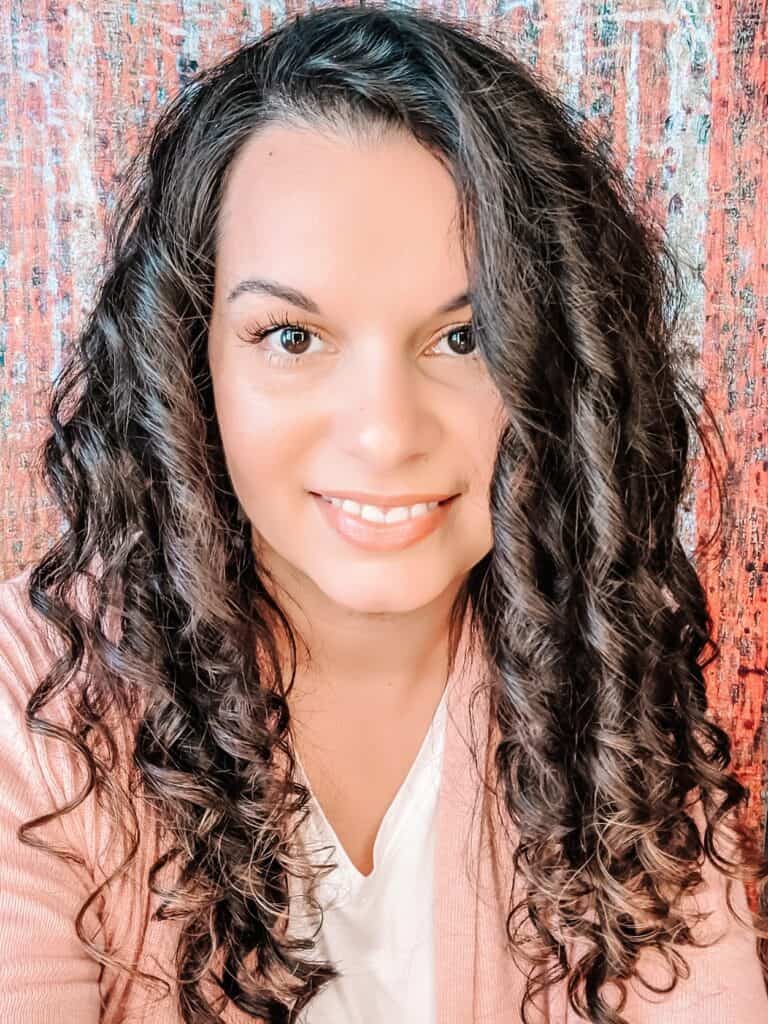
How to find nontoxic & organic curly girl approved products
The first step is knowing which ingredients to look out for, just like we already do for CGM approved products.
Ingredients to avoid
What are the ingredients I am looking to avoid? The most common ingredients to appear in hair care that have proven to be toxic to us are:
1. Formaldehyde releasing agents
Many personal care products contain ingredients that generate formaldehyde, so you will not find “formaldehyde” on any ingredients list. This is one that everyone knows causes cancer so just look for these on the list of ingredients:
- DMDM hydantoinImidazolidinyl urea
- Diazolidinyl urea
- Quaternium-15
- Bronopol (2-bromo-2-nitropropane-1,3-diol )
- 5-Bromo-5-nitro-1,3-dioxane
- Hydroxymethylglycinate
Source: Cosmetic Ingredient Review (CIR)
2. Phthalates
Phthalates are found in a variety of products from skincare to vinyl flooring. They are used to soften plastics but have been linked to adverse effects on the development of male reproductive system. They’re not as common anymore but you can still find them in some products. Source: CIR
3. Fragrance
Sometimes listed as parfum, this is like an umbrella term so that companies can hide chemical ingredients claiming “propriety information”. The Campaign for Safe Cosmetics found that the average fragrance contained 14 chemicals that were not disclosed on the label. Fragrance itself is not toxic, but who knows what’s really in the product. And some fragrances contain phthalates. And remember that essential oils can cause allergic reactions and sensitivities, especially in high concentrations.
Source: Skin Therapy Letter & Scientific American

4. Methylisothiazolinone
This is a preservative and has been linked as an allergen, sensitizer, and organ toxicity. Source: CIR
5. Isobutane & propane
Also called methylpropane and is a moderate hazard. It’s usually found in sprays and mousse. There is strong evidence it is an allergen and irritant and it’s known to be harmful to our ozone layer. Source: CIR
6. Synthetic colors
These are derived from petroleum or coal sources and have long been linked to cancer, skin irritation, and ADHD in children. These are banned by the EU.
- D&C Red 27
- FD&C Blue 1
Source: Science Direct
7. Triclosan
Triclosan is usually found in antibacterial products, though it was recently banned from soaps. It has been associated with hormone and muscle disruption in humans. Studies have also linked triclosan to cancer, developmental defects, and liver and inhalation toxicity. Source: CIR
8. Parabens
These popular preservatives have been a hot topic for a few years, for their supposed link to breast cancer and other hormonal concerns. Do your own research and decide if you want to avoid them. Source: CIR

Where to shop for clean & organic hair care
I like to shop at the following stores that I know only stock clean products which helps take the guesswork out for me:
- The Detox Market
- Credo Beauty
- iHerb
- Vitacost
- Sephora also carries a handful of clean brands but don’t go by their “clean” label
From there I check the ingredients to look for curly girl approved products. You can find some clean products in lines you already use that are sold in stores like Target as well, but you really have to read the ingredients!
Brands I love:
- EVOLVh -15% off with code HE15
- Raw Curls
- Mop Top – 10% off with code HE10
- The Innate Life
- Innersense
- Briogeo
- Treluxe – 15% off with code holisticenchilada15
- Giovanni
- Acure
- Kinky Curly
- Curls
- Shea Moisture
For over 50 affordable and nontoxic curly girl approved products see this post.

How to do your own research on ingredients
So now that we know that products can have ingredients we may want to avoid, let’s talk about how to figure that out on your own.
Please don’t rely solely on the EWG or Think Dirty app!
Some people really love using the EWG (Environmental Working Group) and Think Dirty app. These certainly make things convenient as you just search up a product and right away it gives you a green, yellow, or red light based on the ingredients.
This is great BUT it’s not very reliable. I like to recommend these as a good starting point but not your sole source of information about the toxicity of ingredients.
Oftentimes, ingredients are inaccurate or rated improperly. Brands submit their own ingredients lists and no one checks this so they can hide or change it without our knowledge.
Other times something is rated poorly based on 1 ingredient that has very limited data to support such a rating. This is especially important considering the percentage of the formulation. These apps don’t know that so if it’s only .01% then does it really matter?
So they’re really not 100% reliable. As I said before, use it as a starting point for your research. If you see a bad rating, do a little more research on that ingredient. And verify the ingredients shown actually matches the product label before making any decisions.
If you’re interested in cleaning up your skincare and makeup products as well, then check out these 2 posts to help you get started:
If you want help with embracing your naturally wavy or curly hair, you can join my FREE email course and download my FREE pdf guide, THE QUICK START GUIDE TO MASTERING YOUR CURLS, full of everything you need to know to get started and bring out your beautiful waves and curls.
You can also read my other popular posts on curly hair:
- A Basic Guide to the Curly Girl Method for Wavy & Curly Hair
- What Products You Really Need To Start The Curly Girl Method
- Curly Girl Method Routine for 2B 2C 3A Hair
- 50+ Curly Girl Method Approved Products
- Curly Girl Night Routine To Protect Your Curls At Night
- How To Refresh Curly Hair
- Tips For Fine & Low Density Curly Hair
- How To Clarify Curly Hair
- Rice Water Rinse Guide
- 14 Hacks For Curly and Wavy Hair
- How To Repair Damaged Curly Hair
- Curly Girl Method Before and After – 1 Year Progress Update
- Ultimate Guide to Hair Porosity for Curly Hair
- My Favorite Products for Fine Curly Hair
- 11 Surprising Reasons You Have Frizz + Tips to Beat Frizz
- Common Causes of Limp Curls & Their Fixes
- Guide to Humidity & Weather Styling
- EVOLVh Review
Liked The Ultimate Guide to Clean, Nontoxic, & Organic Curly Hair Products? Save it to your favorite Pinterest board!
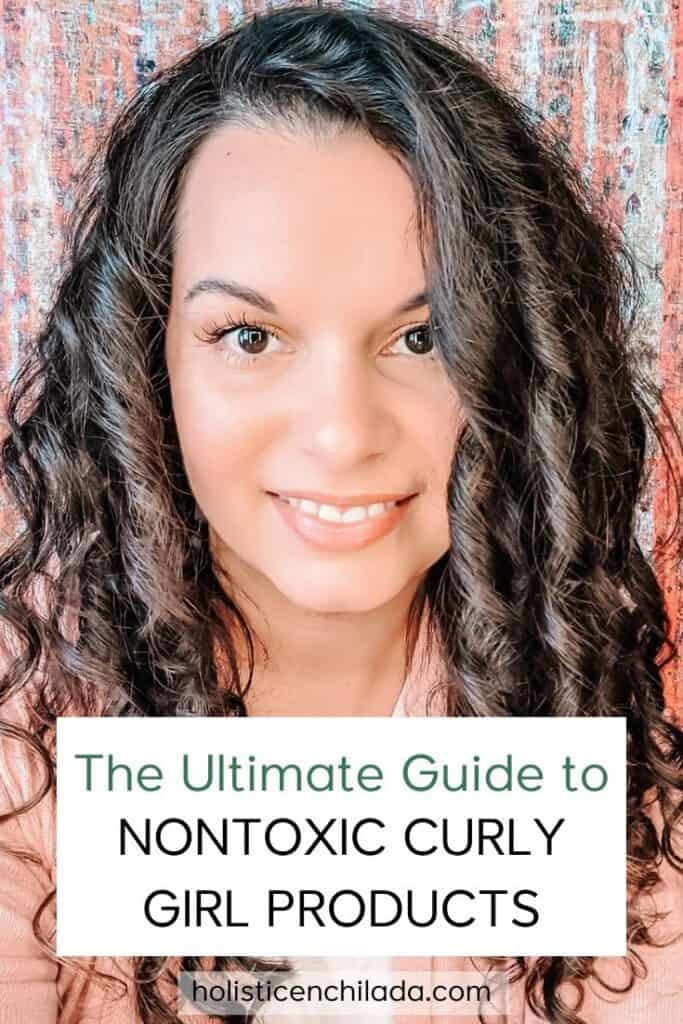
Fabulous Curls Academy
Fabulous Curls Academy is my monthly membership program that gives you access to several online courses that will guide you through creating a simple routine that gives you fabulous results. Learn what your hair type is, which products and ingredients will work for you, and how to style according to your hair type by creating a simple routine that works. No more confusion about products or methods or battling frizz and time. Click here for more info.
Curl & Clean Coaching
I now also offer Curl & Clean Beauty Coaching sessions virtually! You can book a 15-minute, 30-minute, or 45-minute session with me to help you solve your curly hair or clean beauty struggles. Click here to learn more.


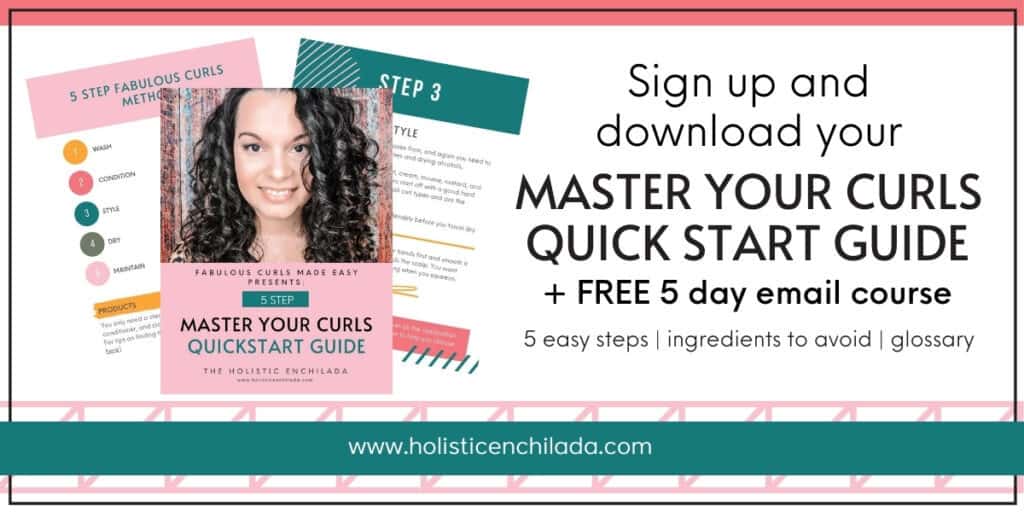
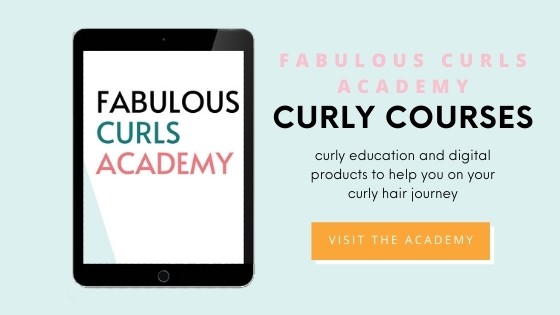
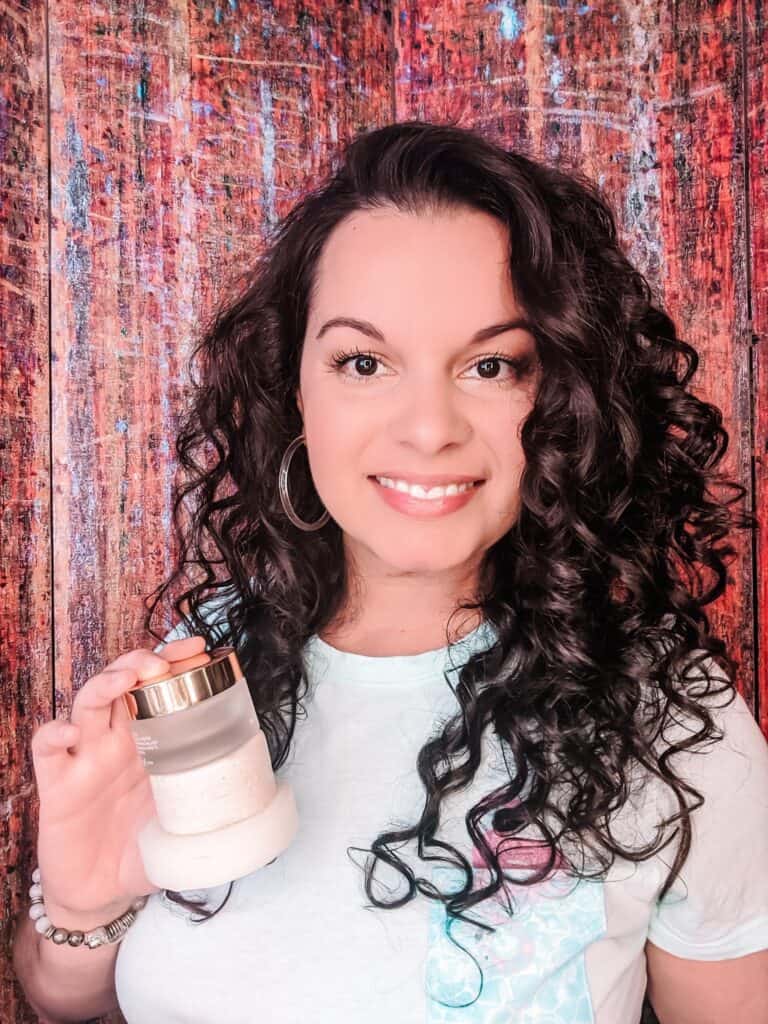
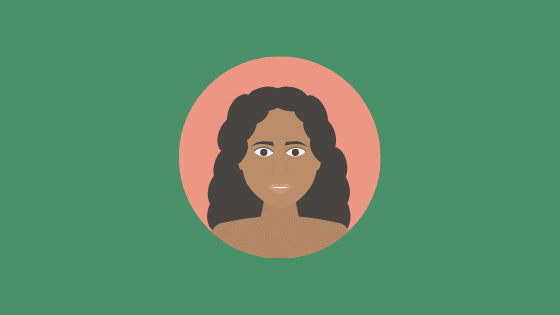



Delilah, please check ingredients in Jessicurl products. I love that line but several of them contain one of the ingredients you’ve listed as to stay away from “Diazolidinyl urea”. I pulled mine from my product line up, with a sad, sad heart. Bit I wanted to make sure you were aware that Jessicurl is still on your list here of products to use.
Thanks Julie. I updated the post 🙂
I seen fragrance listed on some of these. One specifically says fragrance from essential oils, but some of the others don’t. Is there some company disclaimer about only using natural fragrance or is it possible that this ingredient is how “dirty” ingredients can slip in? Thank you!
Fragrance is tricky because it can be essential oils. There are also now “EU approved, safe” fragrances. It’s getting more difficult to find truly fragrance free stuff.